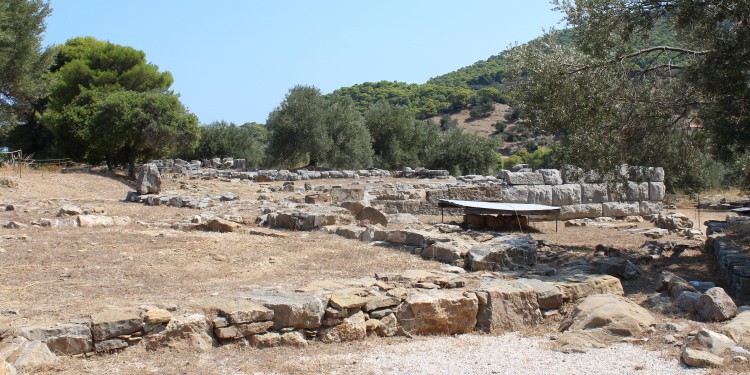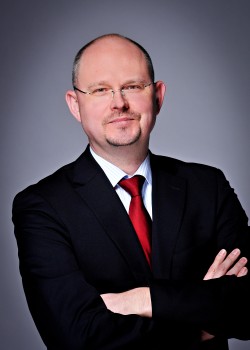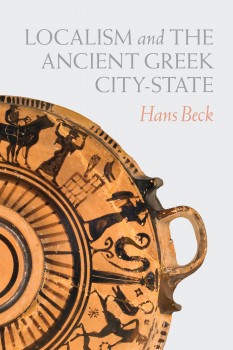
"We immerse ourselves in worlds gone by"
In his book “Localism and the Ancient Greek City-State”, Prof. Hans Beck from the Department of Ancient History traces the influence of localism in the globalized world of ancient Greece. He provides detailed insights into local everyday worlds from the eighth to the first centuries BCE. An analysis of things happening locally can flesh out our historical understanding of this era. The ancient historian also shows how his studies can be incorporated into current discussions on globalisation. Kathrin Nolte spoke to Hans Beck on his findings and his interdisciplinary approach.
Why is the contrast between the global and the local in ancient Greece so important?
When we talk about the Greek world between about 800 and 100 BCE, we often picture a homogeneous historical and cultural area. When we take a closer look, however, we see that this is not the case. The reason is that Greek history was determined by many individual towns and cities – sometimes just small village communities. Using the so-called network paradigm, there have been attempts recently to describe the ancient Greek world more precisely. What is decisive for our understanding is the interplay between the widespread networking seen in Greek culture on the one hand, and its tradition as lived out locally on the other. Greek culture in the ancient world always means multiplicity and local divergence.
As a scholar of antiquity, you draw up detailed case studies which illuminate local events in ancient Greece, is that right?

What examples did you find?
One example is Greek religion, which is strongly characterised by local diversity. Religious practices differed from city to city – even if there were only 20 kilometres between them. Of course, there is a common frame of reference, but religious conduct – as lived out in everyday life – was varied. A second example is that of public spectacles. Everyone knows about the Olympic Games of antiquity, which are always equated with the ancient Greek festival culture. In contrast to this, we studied local games such as sports competitions, music and theatre. For the vast majority of people, these festivals had the immediate potential for being an event to which the entire polis – the city’s residents – went. Olympia was too far away for many people.
What is special about the approach you took in your research?
Immersing yourself in local worlds gone by is only possible in tandem with a careful study of sources and a methodologically refinded classification and interpretation of the evidence. As an historian I use, first of all, literary sources which have been passed down comprehensively from ancient Greece. Inscriptions, too, open up a local view of things. I also find inspiration in collaborating with other academic disciplines. Sociology and the research carried out in that field on social order in neighbourhoods is just one example of that. These studies provide us with new ideas for understanding historical neighbourhoods in ancient Greece.
How can your findings be incorporated into current discussions on globalisation, networks and migration?
Everyone’s talking about globalisation. Academics are constantly producing new conceptual and empirical studies on the subject. What is developing much more slowly, though, is an understanding of how global discourses transfer into the local world. The local is often seen as being small, provincial and backward. However, in the transfer of global trends to local everyday life, an important transformation of meaning takes place. The large-scale, towering movements of globalisation and migration constantly create new realities at the grass roots, at the local level, and these realities look different everywhere. I think this aspect of meaning making at the local level is of critical importance in discussions today.
You are continuing your work at the “Religion and Politics” Cluster of Excellence, for example. What are you studying in your new project?

This interview appeared in the University newspaper wissen|leben, No. 7, 11 November 2020.
